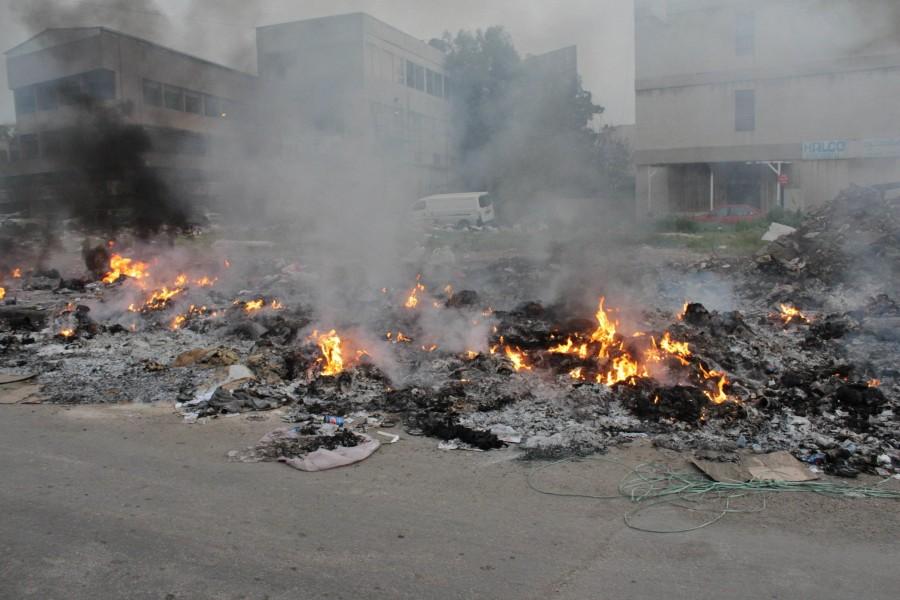LEBANESE GARBAGE CRISIS
Lauren Sfeir discusses Lebanon’s garbage pile up.
 Courtesy Photo
Courtesy Photo
Since I joined the Cedar Post staff, I have been focused not only on sharing my culture and experiences, but also my view on local and global events. Growing up in Beirut, Lebanon, I have experienced a variety of unfortunate happenings due to political corruption and conflict. Some of these included demonstrations and near civil wars.
Recently, in the summer of 2015, Lebanon experienced garbage pile up throughout its streets. This was due to Lebanon’s limited amount of space for landfills and a lack of recycling systems.
Traced back to the mid-1990s, the root of this conflict can be found in the Lebanese government’s agreement with the private company, Sukleen, to collect waste in Beirut, costing twice the amount that the municipality would have charged. This resulted in mass amounts of money spent on garbage collection and the creation of several landfills, in which most waste was dumped in.
Due to being used since 1990, Lebanon’s major landfill, Naameh Landfill, was overflowed with tons of rotting waste. The landfill had reached 500 percent of its capacity when local residents blockaded roads to the landfill to ensure that Sukleen could no longer make any deliveries. This forced the government to temporarily close it.
In addition, on July 17, Lebanon’s contract with Sukleen expired halting the collection of garbage throughout the country.
Along with that, Lebanon’s inability to elect a president and lack of planning, eventually led to the mass garbage build up. With the garbage, came diseases, stench, and multiple demonstrations around the country.
“Well, during the garbage crisis, the stench was absolutely repulsive! All the roads were covered in trash. I had to minimize lots of my outings so that I wouldn’t catch any diseases. In fact, most of us had to wear those health masks over our faces whenever we left our houses to further minimize the risk of getting one,” senior Nassib Jawad, a student at Lebanon’s City International school, said. “Often what made the problem even worse was when it would rain! The streets would literally become flooded with garbage and the smell would get even stronger.”
As of four months ago, the trash was bagged and stacked in Jdeideh, Beirut, near residential buildings, forming the “trash river”. A British firm, Chinook Urban Mining, was supposed to export the waste to Russia, however in February, the plan broke because of their failure to obtain documents that proved Russia had accepted the waste.
As for now, Lebanese continue to blame the government for Lebanon’s trash and electricity issues and can only hope that a solution quickly comes at hand.
“Events like these only further destroy our country’s natural beauty and sanitation. That is why it is crucial to find solutions to such problems in the shortest amount of time possible,” Jawad said.

Lauren Sfeir is a Senior and is Photo Editor for the Cedar Post. This is her second year on staff.









